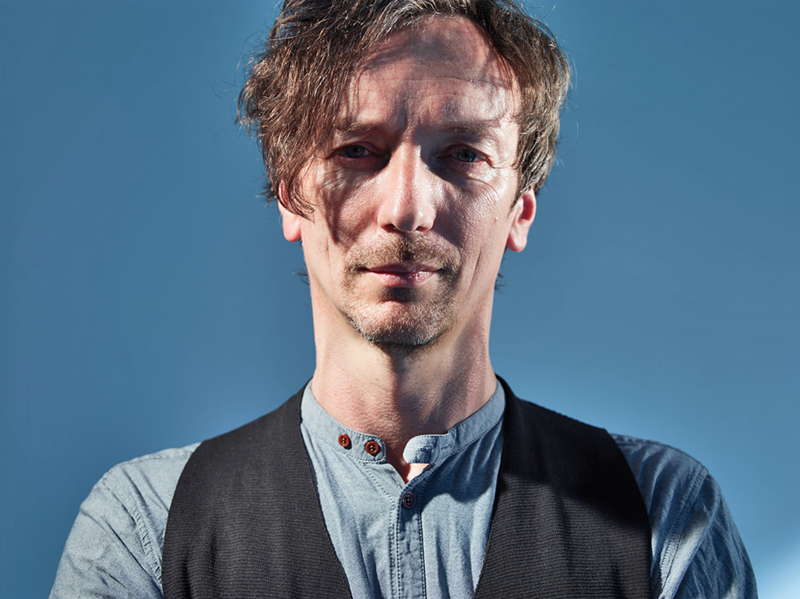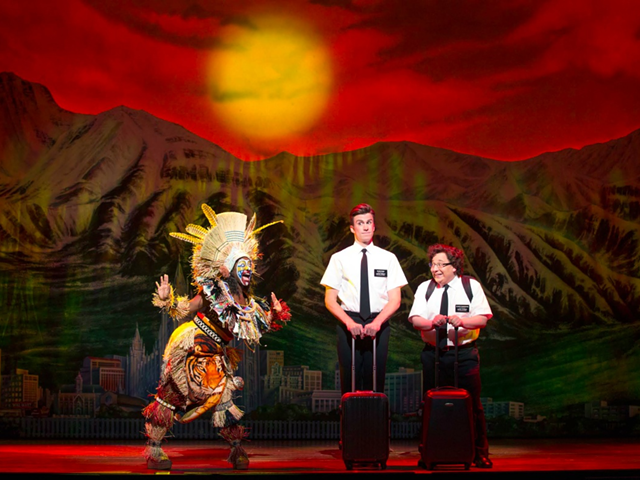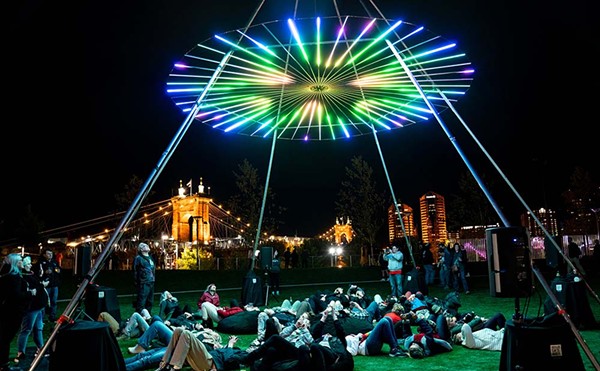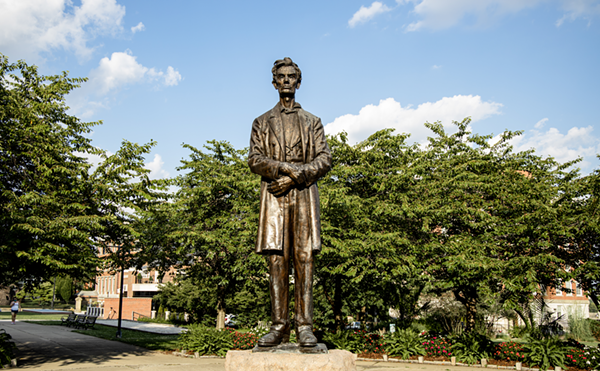T
hanks to the Contemporary Arts Center (CAC), Cincinnati Symphony Orchestra, the University of Cincinnati’s College-Conservatory of Music (CCM), concert:nova and MusicNow, New Music progressivism is alive and well — and building a devoted following — in Cincinnati. That’s especially true as downtown’s CAC presents German prepared-piano composer Hauschka on Friday night for its first concert of 2014.
It’s fitting that Volker Bertelmann, who goes by the performance name “Hauschka,” should be starting his 2014 tour in support of his upcoming Abandoned City album here. (It is his seventh solo album.)
As David Lewis wrote on Allmusic.com, back in the 1960s Jeanne Kirstein — a piano professor at CCM — worked with composer-in-residence John Cage to revive his interest (and the public’s) in the groundbreaking prepared-piano works he developed decades ago. A prepared piano is one in which foreign objects are placed inside the piano by the strings, hammers and dampers to alter the sound and often make it more rhythmic or percussive.
The result, her landmark 1970 album, John Cage: Music For Keyboard 1935-1948, introduced those works to a new generation. Since then, Cage’s prepared-piano compositions have entered the 20th century avant-garde canon.
The Düsseldorf-based Bertelmann had never heard of Cage when he first experimented with prepared piano on his 2004 album Substantial. “That CD was my very first piano CD,” he says via email from Germany. “I recorded restaurant noises that I put under the piano tracks, and a few songs have little plugged sounds. I discovered the preparations at the studio of my friend Adam Fuest in Wales. After this recording, I was infected.”
And it didn’t take long to learn about Cage as he worked on his next album, 2005’s The Prepared Piano. “A friend of mine wrote a text about prepared piano because I wanted to put some liner notes about preparation of pianos in history,” Bertelmann says. “He wrote about John Cage and Henry Cowell, etc. John Cage’s opinion on music is very similar to my beliefs. I think the idea that everything is music makes you open to create or to search for the perfect sound.”
Actually, Abandoned City — on which all but one cut are solo prepared-piano compositions — doesn’t sound all that much like Cage’s work. It is informed by Bertelmann’s interests in Pop, Rock, Jazz and the contemplative yet rhythmically insistent work of New Music giants like Terry Riley, Steve Reich and Philip Glass. One reference point might be Icelandic composers like Ólafur Arnalds and Valgeir Sigurðsson, both of whom have appeared at the CAC recently.
“One song is recorded with prepared piano, clarinets and contrabass but all the rest are [just] prepared piano and delays,” Bertelmann says. “Abandoned City is a record that is my darkest. I wanted to create a CD that describes a moment of loneliness that is at the same time the most beautiful moment. For example, when I play piano for an hour, I feel inspired and fulfilled and at the same time alone and scared, because this moment is over so fast, nothing is reversible.”
Many of the individual song titles refer to abandoned cities around the world. “There are around 2,500 cities abandoned,” he says. “I was seeking a metaphor for the line between happiness and sadness. So somehow the abandoned places stand for death and life at the same time.”
Bertelmann, 47, traces his interest in making music to a concert he attended at age 9 in his small provincial village. “It was a very strong Protestant community,” he says. “My father was the head of this group where we sang and heard a lot of Bach and Mozart. One day there was a piano concert of Chopin in our church and the guy who played it somehow left an impression on me. I asked my mother if I could have piano lessons with this guy.”
He did, but he soon discovered there was more to music than the classics. “I was intrigued by a lot of English Pop music like Depeche Mode, Tears for Fears or bands like Queen or The Beatles. When I was 12 I bought my first Moog synthesizer and I wrote the songs in my first band at school.”
He also experienced success in the 1990s as part of a German Hip Hop duo called God’s Favorite Dog. “I founded it with my cousin, Oliver Lodge-Philips. We both were rapping in this band. We tried to do danceable music with intellectual lyrics. I wrote all the music.”
He and his cousin, who was born in New York City, got signed to Sony Music after their first gig. “We played festivals in Germany with Public Enemy and Suicidal Tendencies and I stage-dived a lot.”
It has taken Bertelmann a while to find the right music for him, but he has done well with it lately. He has toured and recorded with American violinist Hilary Hahn and had Techno producers release remixed versions of his recordings. He has composed for film and stage and created an experimental music festival in Düsseldorf called the Annual Piano Approximation Festival.
It’s taken awhile, but he’s achieving some of his childhood dreams to write songs and maybe even be a Pop (as well as New Music) star.
“Everyone told me that this is a dream and unfulfillable,” he says. “I know that dreams exist to make you move towards them, and in the ideal world you reach them. My way to find out about that was long. It took me around 30 years to understand and develop my personality.”
At the Cincinnati concert, Bertelmann will bring his foreign objects for the piano. He is dependant, however, on the CAC — and other locales on his tour — to provide the piano. “I will play different pianos every evening. It will not always be a Steinway,” he says.
“I think to play on many different pianos makes you more flexible and gives you an idea of sound.”
HAUSCHKA (Volker Bertelmann) will perform 8 p.m. Friday at the Contemporary Arts Center, 44 E. Sixth St., Downtown. Tickets are $14; $8 CAC members. Visit contemporaryartscenter.org to purchase.






